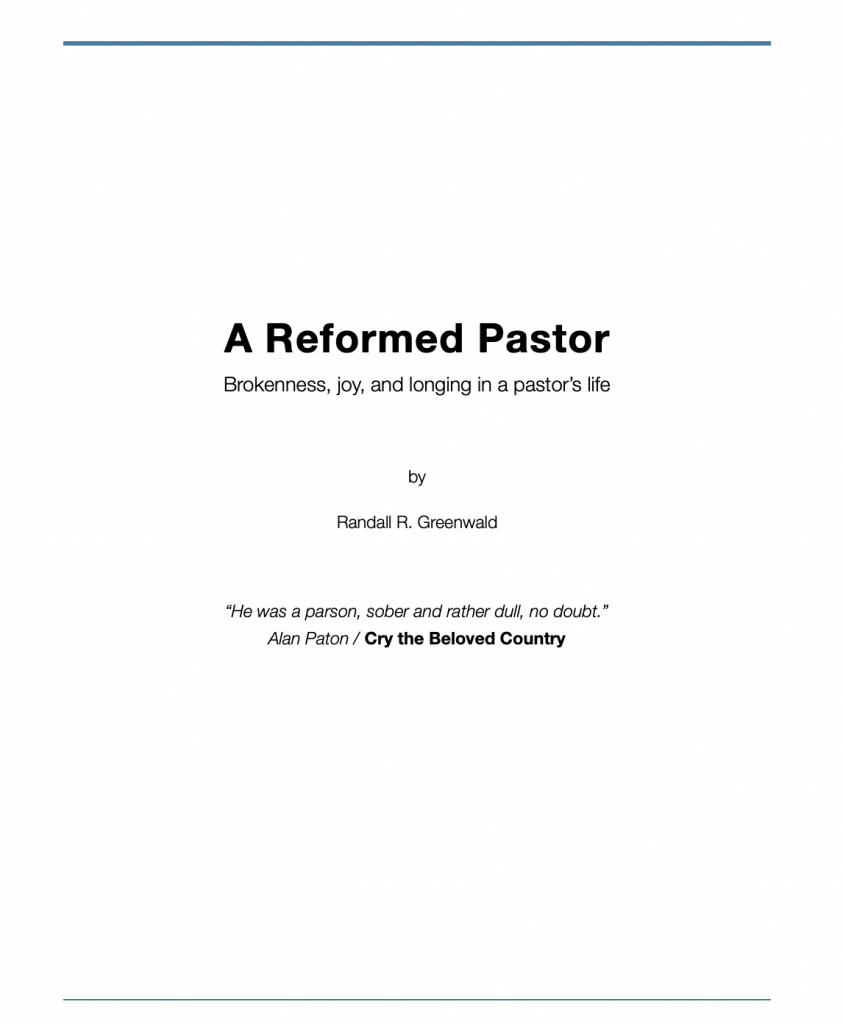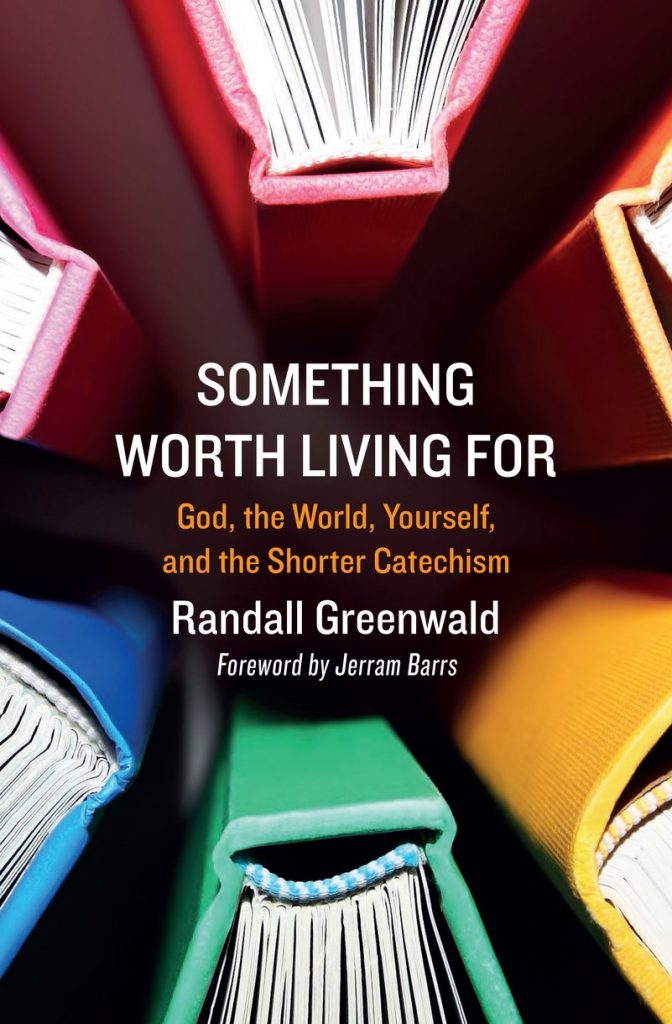In advance of the release of Something Worth Living For Matthew Barrett and Credo blog asked me to write a series of blog posts touching upon the value of a catechism. With their permission I am reposting these here for those who did not see them there.
❦
Recently a member of my church’s staff poked his head into my study to ask me a “quick” question. He had been given money by a family member to replace his ancient and ailing PC with a new computer. “Why do you use a Mac?” he asked me.
It was not quite a “What must I do to be saved?” moment, but the way some of us are religiously devoted to our computers, it was close.
I framed my answer to his question guided by the way he asked it. He was genuinely curious. He was open to understanding my position and to thinking in a new way. He was not seeking an argument. He wanted to learn. I answered him, therefore, sensitive to where he was coming from. Sure, I hoped to nudge him a bit in the direction of my convictions. But if I pushed too hard, or was too negative about the admittedly much less expensive PC, he might shut me down and not hear me.
Our presentations of theology should bear the same spirit. There are legions of those curious about Christianity who have been put off by the polemic nature often attending its presentation. Those who are curious are seeking understanding, not an argument. The tone and content of our presentations should be shaped by those to whom we speak or write. The Westminster Shorter Catechism can provide a wonderful doorway into a theology worth embracing, but only if we handle it with care and present it in a way that can be heard. What might that look like?
I have already noted in these posts that our presentation of the Christian faith needs to be comprehensive. When we overly simplify the gospel, we risk not presenting the gospel at all, but some caricature of it. A tool like the Catechism disciplines us to convey the breadth of the gospel, even the hard things, without simplification and without losing our way with secondary matters.
As well, our teaching needs to be accessible. Most of those who are curious do not have the patience to read the newspaper much less John Owen. The Catechism answers the question “What is God” with twenty-seven words. That compares with Stephen Charnock’s 400,000 (in The Existence and Attributes of God). If we can help people catch the gist of those twenty-seven words we have opened a door for them to see and appreciate deeper wonders. They may choose to go further or not. It is our job to point the way in a manner that they are able to hear.
Further, we need to be positive. It’s a bitter and polemic age in which we live. We tire of polarized parties lobbing grenades across “enemy” lines. And yet some of our theological presentations feel that way. If we spend our time tearing down the opposition, we run the risk of losing the attention of our audience. My friend wants to know what’s good about a Mac not what is awful about his PC. Similarly, I want people to know what is beautiful about the Christian gospel. There will be a time to introduce them to Arius and Pelagius, perhaps even to Arminius. But first, let’s help them appreciate the gospel’s positive beauty.
Which means our presentation needs to be pastoral. One need not be a pastor to assume a pastoral mantle here. Many people struggle. They have genuine questions and hurts. They feel guilt for their doubts and anger for their pain. They struggle to know a God that they hate or do not trust. We need to listen to them, and our presentation needs to show that we have listened and that we have understood their questions. Our words must reflect an understanding and a sensitivity to the realities of the lives of our readers and listeners.
And finally, any presentation of Christianity needs to be deeply passionate. We need to show that these truths matter to us. Dry and dispassionate theology is clinical and sterile and unattractive. A guidebook to the Rocky Mountains may either bore or inspire. Give me bare statistics or esoteric data about the Grand Tetons, and I’ll yawn. Help me see them with the breathlessness you feel, and I’ll want to drop everything to come see what you see. The same must be true about theology.
This is the spirit which has driven my writing of Something Worth Living For. Whether I hit the target or not, others will judge. My friend may show up in a week or two with a brand new shiny Dell computer. But hopefully I’ve done nothing to poison his view of the advantages of the Mac so that someday, if his PC disappoints, he will consider what I have said. If we present Christianity well, the words we speak will not be forgotten. They may in time be used to awaken others to find in Jesus something worth living for.



